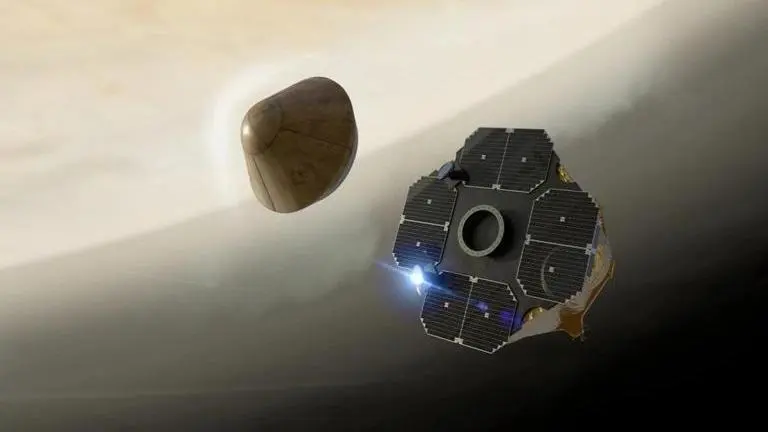Updated 25 September 2022 at 22:45 IST
Rocket Lab's Venus probe will have just 5 minutes to hunt for life; here's why
Rocket Lab is planning to launch world's 1st private mission to Venus in May 2023 but the probe being sent will have just five minutes to hunt life. Read how.
- Science News
- 3 min read

In August this year, Rocket Lab announced that it will launch a probe to Venus in May 2023, making it the world’s first-ever private mission to the planet. Being developed at an estimated cost of $10 million, the mission is backed by Rocket Lab and the Massachusetts Institute of Technology (MIT) and includes a probe weighing 20 kg.
We're sending our Photon spacecraft to Venus in search of life 🛰️
— Rocket Lab (@RocketLab) August 16, 2022
Supported by a science team at @MIT, this is the 1st private mission to Venus & 1st opportunity to probe the Venusian clouds in nearly 4 decades.
Full mission details in this new paper: https://t.co/diJter9Lmt pic.twitter.com/FA53lZpCCH
In an official statement released on August 17, the New Zealand-based rocket company revealed that the mission’s objective would be finding signs of life in the Venusian atmosphere by dropping the probe through it. However, the instrument will have just five minutes to do so before it hits the planet's surface. Venus has caught the attention of scientists ever since Phosphine was detected in its atmosphere, an element that is created through biological processes here on Earth.
Mission profile
The probe is targeted for launch next year and Rocket Lab has developed a multi-purpose Photon spacecraft that will throw the instrument into the Venusian atmosphere. The company used the same class of spacecraft to send NASA's CAPSTONE CubeSat to the Moon. According to the mission profile, the probe, which will arrive at Venus in October 2023 if launched in May next year, will be released by the Photon spacecraft after its arrival. Following its release, the spacecraft, equipped with a heat shield will hit the Venusian atmosphere at a speed of 40,000 kilometres per hour.
From @techreview: Five minutes is how much time the @RocketLab probe will have to investigate the atmosphere of Venus- but the information it will send back is crucial for the Venus Life Finder Mission. @ScienceMIThttps://t.co/PlVkVhMOTv pic.twitter.com/gdqlPsMcFT
— MIT EAPS (@eapsMIT) September 21, 2022
Measuring 15 inches across, the probe will carry out a close-up inspection of Venus’s clouds using a device called the autofluorescing nephelometer. A report by MIT's Technology Review says that the device will flash an ultraviolet laser on droplets in Venus’s atmosphere to determine the composition of molecules inside them. "We’re going to look for organic particles inside the cloud droplets,” Sara Seager from MIT said in a statement.
Advertisement
Although the discovery of organic molecules, which can also be created through non-biological processes, would not ensure finding signs of life, Seager said it would be a step “toward us considering Venus as a potentially habitable environment". What's interesting, however, is that the probe will have just five minutes to conduct the experiments as it will drop at a high speed toward the surface. An extension of the mission depends only if it survives after hitting the ground.
Apart from Rocket Lab, NASA and the European Space Agency (ESA) have also planned three missions to Venus. China and India are also in line to launch their own investigations to learn more about the dreadful planet. India's mission, which is named Shukrayaan, is currently facing developmental issues owing to the deteriorating relations between ISRO's partners Russia and France as a result of the Ukraine crisis. Tap here to read more.
Advertisement
Published By : Harsh Vardhan
Published On: 25 September 2022 at 22:45 IST
